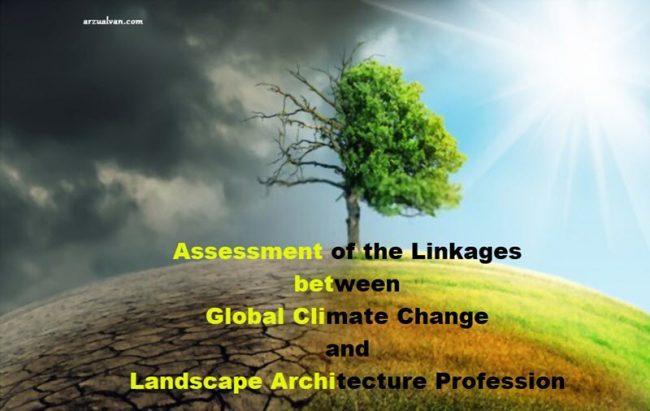
Climate is one of the most important factors affecting life, ecosystems, and landscapes on earth. Today, global climate change and resulting warming adversely affect various natural and social systems such as biological diversity, coastal ecosystems, landscapes and their compo-nents. Therefore, there is an urgent need to integrate national planning and sectoral policies with the challenges posed by climate change. Accordingly, the aim of this study was to evaluate the linkages between global climate change and Landscape Architecture Profession within the process of climate change mitigation and climate change adaptation. Three stages were fol-lowed in the implementation of the study: compilation of existing studies, literature review, and synthesis.
As a result of the evaluation, it was determined that Landscape Architects can significantly contribute to the process of reducing the impacts of climate change (reducing greenhouse gas emissions) and adaptation to climate change (adjustment in the natural and social systems) through the approach of ‘Resilient Landscape Planning and Design’, which can be implemented at different scales. Besides, green infrastructure (e.g. green corridors and nature reserves) and open-green spaces (e.g. urban park) designed at different scales in urban and rural landscapes are the other important planning tools, which can contribute to achieving the indicated goals. Both planning tools can make a significant contribution to reducing the “Carbon Footprint”, especially in urban areas. “Climate Change Vulnerability Assessment (CCVA)” constitutes the first stage of the ‘Resilient Landscape Planning and Design’. With CCVA, fragile landscapes can be determined and the obtained relevant data should be inte-grated into the climate change adaptation goals and strategies.
Gülay Çetinkaya Çiftçioğlu & Arzu Alvan Bozdereli
For the full paper please contact to: arzualvancom@gmail.com